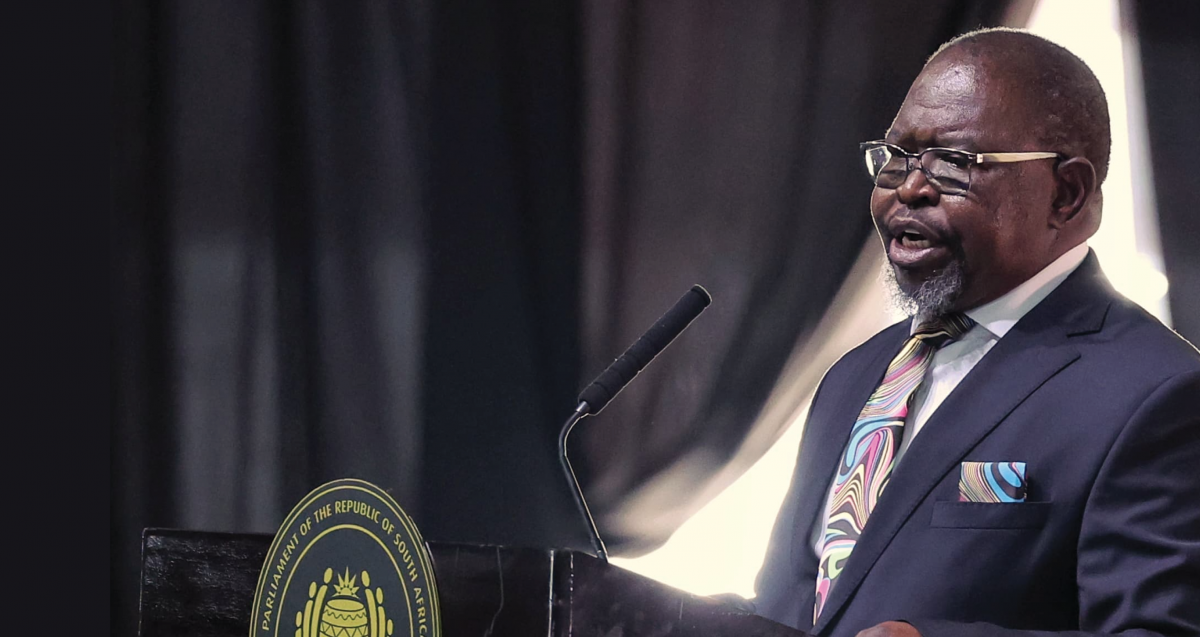The government has added R19.1 billion over the medium term to keep approximately 11 000 teachers in classrooms. “Our learner-teacher ratios remain higher than we would like, meaning that we still need more teachers in classrooms,” Minister of Finance Enoch Godongwana said recently when presenting his Budget Speech in March.

According to the Minister, paying salaries constitute 76% of provincial education budgets.
“This means that only R24 out of every R100 of their budget is left for funding school infrastructure, meals for learners from poor backgrounds, and stationery and textbooks, amongst others. “To prevent compensation of employees from crowding out other equally important areas of spending, R19.1 billion is added over the medium term to keep approximately 11 000 teachers in classrooms.”
He said the foundation to building the next generation of citizens who contribute economically and socially to the nation is in early childhood development (ECD). “Despite this, the subsidy for ECD has not increased from the 2019 level of R17 per day, per child. To remedy this, an additional R10 billion over the medium term is allocated to increase the subsidy to R24 per day per child. The extra funding will also support increased access to ECD for approximately 700 000 more children, up to the age of four years old.”
Meanwhile, the Department of Higher Education is implementing a pilot student funding model for the “missing middle”, which refers to students from families with annual incomes ranging from R350 000 to R600 000. The National Student Financial Aid Scheme will manage these loans using funds provided by the National Skills Fund, amounting to R1.5 billion in 2024/25 and R3 billion over the Medium-Term Expenditure Framework (MTEF) period.
“The arts, culture, sport and recreation sector is allocated R38.4 billion over the medium term to support school sports, national recreation events and selected sporting codes, as well as to preserve and promote the cultural, heritage and linguistic diversity of South Africa,” Treasury’s 2025 Budget Review document noted.
Health
Health spending will grow from R277 billion in 2024/25 to R329 billion in 2027/28 to support the equitable provision of public health services, including free primary healthcare. “Like in provincial education, a significant portion of the provincial health budget is spent on the salaries and wages. R28.9 billion is added to the health budget, mainly to keep about 9 300 healthcare workers in our hospitals and clinics. “It will also be used to employ 800 post-community service doctors, and to ensure that our pharmacies do not run out of medicines,” the Minister said.
Job creation
Minister Godongwana added that the South African government will spend more than R1 trillion over the next three years on public infrastructure in a show of government’s commitment to driving economic growth. “Infrastructure is a key pillar of our growth strategy. It is the bedrock for economic development, a key source of jobs, and an avenue to scale-up service delivery.
“This budget reflects that understanding. Allocations towards capital payments are the fastest growing area of spending by economic classification. Public infrastructure spending over the next three years will amount to more than R1 trillion,” Godongwana said.
Current infrastructure focus is geared towards:
- R402 billion on roads infrastructure
- R219.2 billion on energy infrastructure
- R156.3 billion on water and sanitation infrastructure
Value Added Tax
Furthermore, Minister Godongwana added that in light of new and persistent spending pressures in health, education, transport and security, government has decided to raise value-added tax (VAT) by 0.5 percentage points in each of the next two years, which will bring VAT to 16% in the 2026/27 financial year. “These have to do with the government properly fulfilling its service delivery mandate. After careful consideration, the government has decided to fund these. Deferring the funding of these sectors further would compromise the government’s ability to meet its constitutional obligations to the people.”
The first 0.5 percentage point increase in the VAT rate will take effect on 1 May 2025 and the second 0.5 percentage point increase will take effect on 1 April 2026. “This decision was not made lightly. No Minister of Finance is ever happy to increase taxes. We are aware of the fact that a lower overall burden of tax can help to increase investment and job creation and also unlock household spending power.
“We have, however, had to balance this knowledge against the very real and pressing service delivery needs that are vital to our developmental goals and which cannot be further postponed.”
He explained that government thoroughly examined alternatives to raising the VAT rate.

 Facebook
Facebook Twitter
Twitter WhatsApp
WhatsApp